#difference between insurgency and terrorism
Explore tagged Tumblr posts
Text
A lot of people seem to think Islamophobia was somehow causative to the series of US Imperialist adventures referred to as "The War on Terror" (rather than being a rhetorical justification). Which is probably why they'll accept claims that group any other mistreatment (genuine or fabricated) of Islamic peoples along with "The War on Terror" regardless of the obvious differences in the social and economic relations at play.
Like regardless of the specific policies you believe are being pursued, on a fundamental level the very basis of the relationship between Beijing and Xinjiang is materially different to the relationship between Washington and Iraq. If you want to draw specific lines of connection and influence between the two then sure; if you have the evidence then you have an argument. But you can't act like the policy of a Marxist-Leninist regime towards unrest and insurgency in a province their country has administered for centuries is in any way a direct extension of an Imperialist regime's invasion and occupation of sovereign nations on the other side of the world. Doing so demonstrates a complete lack of awareness towards the conditions of the material world. It's a complete joke to call yourself "Marxist" while engaged in that form of superficial idealism, especially when said idealism is directed towards (already widely discredited) attacks on actually existing Socialism. That level of thought makes you nothing more than a well-read Liberal
38 notes
·
View notes
Video
Coming Soon! I Narco Terrorism in India Part- 2 I Teaser Out I NISSMAT I...
#narco terrorism#narco terrorism in manipur#kuki narco terrorism#terrorism explained#terrorism history#drug trafficking#Security threats#terrorist organizations#Intelligence operations#Narco-terrorism in India#Narco Terrorism in India Part 2#NISSMAT#Money laundering activities#National security risks#difference between insurgency and terrorism#terrorism laws in india#history of terrorism in india#causes of terrorism in india#terrorism in north east india
0 notes
Text
by Seth Mandel
The term “asymmetric warfare” generally refers to the power differential between combatants, but it’s also a good descriptor of the different tactics that state actors and nonstate actors have to use. A state actors generally doesn’t have to worry about a terrorist group marching on its capital, and terrorist groups in turn are not usually vulnerable to the kind of social breakdown caused by their own tactics.
And yet, Israel’s moves against Hezbollah suggest, there are exceptions. Such as when terrorists become sovereign governments.
Hezbollah, Hamas, and the Houthis—the main terrorist organizations at war with Israel—mimic states. They do so even though they govern on behalf of a foreign power: Iran. South Lebanon (many would argue the whole of Lebanon) isn’t a territory dealing with an insurgency; it is Hezbollahland. There is no insurgency. The government has too much control over the population to allow one to develop.
The Houthis control part of Yemen, including the capital Sanaa, in similar fashion. Before the current war, Hamas was the only game in Gaza. These aren’t resistance groups, they are the groups against whom a citizen would resist.
Terrorists sow terror through violence against innocents. But what if you could inject the same chaos by targeting the terrorists—a legal, ethical, and moral inversion of the evil and criminal methods of the terrorists themselves?
That’s what Israel appears to be doing. Iran has overextended itself, and Hezbollah has gotten too big for its britches. You can’t play at this level, Israel seems to be saying to the terrorist army occupying Lebanon. Hezbollah has made itself vulnerable to the weaknesses it has for so long exploited in others.
Suddenly, the citizenry is suspicious of the totalitarian thugs in charge. Don’t get too close to a Hezbollah soldier, his pager could explode at any moment. Stop believing that you’d starve without Hezbollah; those cash vaults underneath the hospital suggest they’ll starve without you. Remember that “generous” loan that you got from Al-Qard Al-Hassan, the “credit bank?” That place is where Hezbollah can use you to unknowingly wash its money for it—money that, if Hezbollah weren’t here siphoning Lebanese resources, might have been yours to begin with.
Meanwhile, that same suspicion can curtail Hezbollah’s recruitment. A lot of people may be having second thoughts about showing up to the job fair where they hand out the pagers. Or you might wonder: Am I talking to a Hezbollah commander or a Mossad agent dressed up like one for Purim?
28 notes
·
View notes
Text


I would like to politely request that if you find yourself not understanding the point of my posts, don't engage with them. Don't embarrass yourself.
Because I certainly don't want to have to point out the irony of a person reacting to my (long winded) wry post about how uninformed uninterested Americans project and misinterpret the motivations, on a societal level, of Israelis and Palestinians... in a way that completely confirms that. You don't understand Zionism, point blank. You have not done your research, you do not understand why Jews for their entire history have yearned to return to Eretz Yisrael, and so you lie about that history, or you uncritically regurgitate other people's lies that you've heard about it.
You don't expect better of Muslims either, and there's a reason I only mentioned how people like you interpret this conflict to be about Jews vs Muslims, so do not pretend you care about the maybe 10% of Palestinians who are Christians. I note that the antizionist crowd routinely erases Bedouins, Druze, Samaritans, Circassians, Christian and Muslim Arabs who choose an Israeli identity over a Palestinian one. Not a single antizionist can mention the actual diversity of Israeli society without acting like their teeth are being pulled. So spare me.
My post was a (long winded and wry) assessment of what I have seen and what I think the general slacktivist Left conceive of Israel and Palestine. That it's a conflict between enlightened secular Christian-Lite white people who should know better, who should be over things like wanting a return to Zion... and what you see as noble savage barbaric Muslims who at least live a good honest non capitalist life, and we as the West owe them whatever they want because the War on Terror was horrific, yes.
But in the process you 1) erase the Jewish heritage and connection to their indigenous homeland, and replaces every single motivation for Zionism as racist imperialist bloodthirsty greed. Have fun gaslighting all of us as to how that's not blood libel. And you 2) excuse suicide bombing, targeting civilians, stabbing and driving over random people, mass shootings, war rape, hostage taking, torture, making fun little games out of torture... you'll excuse everything Hamas and their allied groups do in the name of "resistance," not just because you dehumanize Jews, but because I believe you really don't think Muslims are capable of being better than that. And because yeah, they're attacking Jews, who you view as privileged and annoying and the root of all problems in the world, so that's another reason not to expect better of them.
It ignores that there are tens of millions of Muslims who care about democracy, human rights, coexistence, peace... a lot of them are Palestinians. But you don't listen to them, you don't let them take the lead in their own liberation movement. You cheer on fascists because that's what a Muslim is in your head. Hezbollah, Al-Qaeda, ISIS, Hamas, now the Houthis: masked insurgents who have no regard for the sanctity of human life, no regard for their own people, sadistic manchildren who are only interested in enriching themselves and causing pain in the world, thinly scaffolded with the most cruel interpretations of a religion that a billion people follow. The only difference between you and your conservative racist parents is that you think the terrorists are the good guys now.
But thanks for stopping by :)
67 notes
·
View notes
Note
Hey, I know the core Delta Green team’s politics aren’t all great, but I feel like the take that the take that their work is pro surveillance state is pretty uncharitable. I feel like a core theme of the modern setting is that the horrible actions of agents defending against the unnatural aren’t justified, and you can pretty easily draw that over to real world actions of our government “protecting” us from criminals and terrorists not being worth the human cost of the war on drugs and the war on terror.
I'm definitely a lot more cynical toward ArcDream for a few perhaps overly-specific reasons, and I've struggled to find a way to concisely articulate this vibe I've had about it. I think I'd like to do a more detailed breakdown /retrospective series on the more recent campaign and scenario guide to really get into the weeds of it.
The short of it is that you aren't wrong, but I think a lot of modern Delta Green's issues with the security state comes from this uniquely American idea of being "apolitically anti-authoritarian, anti-big government." It never makes the leap to being anti-imperialist or understanding how all these post-9/11 systems were just the mechanisms of global intervention and counter-insurgency turning inward. Having high speed low drag operators from the Program salting the Hindu Kush canoeing the Kandahar Giant in between skirmishes with the Taliban is badass, but spying on Americans or having those same teams operate domestically is bad. There are things that we do over there that we shouldn't be doing to American citizens over here.
Add to that the fact that the differences between the Outlaws and the Program, which could be fertile ground for saying something interesting, mostly comes down to "do want to play the old way like the 90s version where you have a shoestring budget or do you want to be a kitted out marauder with close air support?" It feels like there's an ideological contradiction at the heart of Delta Green that should imply nuance, but when you go looking for it you'll be hard pressed to find much substance-- hell at times it goes out of its way to distance itself from any idea of a real political conspiracy. Its a game about government conspiracies, that seems embarrassed to talk about government conspiracies. They just want to use it as an aesthetic backdrop to tell a story set in the mythos where you can blow up a Shoggoth with an AT4
Look, I don't need every piece of media to conform uniquely to my personal politics for me to enjoy it. But for me Fall of Delta Green feels like it walked away with all the more interesting ideas that made the original 90s game compelling, and demonstrates a more clear picture than modern DGs amorphous "spying is bad but so are terrorists and political extremists are also bad. The system is flawed but also you have to work within the system to save the world." Fall of Delta Green revolves around this central idea of "yeah you are a piece of shit, and all this shit catches up to you in 1970. But for 10 years you can do whatever you think you can get away with so don't even bother taking your foot off the gas." It tells you, very explicitly, how the story ends and what all this interventionism is heading towards before you even start the game. Add to that Fall of Delta Green's Grant-Morrison-esque off the rails worldbuilding about syndemes that's not afraid to get really high concept and... I don't know. I just prefer it more, personally.
16 notes
·
View notes
Text
Star Trek and the Maquis: A Contest of Metaphors
This was inspired by an Ask many moons ago. I had the majority of this written within a week but then two hurricanes and a lot of wrangling over how to edit it coherently later, I'm just going to publish it as a series of rather messy and meandering essays.
The Maquis are a bit of an inkblot test for fans. While the narrative certainly goes to great efforts to skew us towards being sympathetic to them and aghast at the Federation's complicity in trying to squelch their uprising, I maintain there is room for valid disagreement on just how "in the wrong" the Federation was.
The inkblot test aspect of it comes down to how different members of the audience think about state level warfare and irregular warfare, aka insurgency, and maybe even terrorism.
For instance the Maquis, or at least Michael Eddington's faction, will wind up crossing the line that most people seem to think is the line between insurgency and terrorism: namely the indiscriminate targeting of civilians and noncombatants. Although a disturbing feature of debates about fictional and non-fictional peoples and movements can include some litigation of who is really a non-combatant and whether the moral protection that status confers can be stripped away by mitigating circumstances like being the beneficiary of state violence or being an accessory to atrocious acts without actually directly carrying them out.
At the same time, we also know that the Federation's attempt at a lasting peace with the Cardassians was doomed from the start: brazenly insincere on the part of the Cardassians, purchased by the Federation with a high price in moral credibility, and ends in the Cardassians welcoming the Dominion into the Alpha Quadrant. This line of thinking often ends in a presumption that since efforts to secure peace ultimately failed, those efforts were wholly a waste, preemptive violence should have been undertaken, and anyone who acted as if the failure of peace wasn't preordained was a blind fool.
Knowing where the story ends doesn't mean we can't still debate the Federation's degree of culpability for not intervening sooner to ensure that things don't reach a point where indiscriminate targeting of noncombatants by ex-Federation civilians is imminent.
A big part of what makes this an inkblot test is because it almost assuredly is a reflection on which analogies loom largest in the mind of the viewer. As it turns out, your preferred reference point for understanding war may strongly influence who you are sympathetic to and how you interpret the risks and ethics involved in any course of action chosen by the Federation and Maquis.
Understanding the Maquis
What I am going to do is, look at three main ideas that I think are most critical for seeing different sides of arguments around the Maquis, the Federation, the Cardassians and how each is understood by fans in terms of sympathy or malice, and in some instances, how they might be understood differently depending on how said fans process stories of state and irregular violence.
The social context of how different fans (and Trek writers) think of state level warfare and irregular warfare.
What was actually happening in the Trek universe around this time and to what degree the Maquis narrative encourages treating its storyline as existing outside of any other broader context.
The competing interests of the state to protect the many vs the rights of the few to defend their homes and way of life.
These are going to get elaborated on in subsequent posts, but very quickly here's a summary of the main points:
Social Context
Since the Russian invasion of Ukraine in 2022, this has become a dominant metaphor for understanding the Federation - Cardassian relationship. Suffice to say, those for whom this metaphor has the most power understand this as an unambiguous contest of moral systems wherein the Federation is guilty of abdicating responsibility for victims of an expansionist autocracy with numerous atrocities on its record and no extenuating circumstances that reduce the magnitude of the Federation's guilt.
Prior to 2022, it is my observation that several other metaphors might have applied: the Kurdish resistance to ISIL (another metaphor that strongly favors the Maquis and condemns the Federation), the Afghan Mujahideen (a cautionary tale in which the nurturing of a sympathetic resistance movement facing oppression has unintended consequences, i.e. 9/11), and finally Cold War dovishness. Cold War dovishness I would describe as not so pacifistic as to be unwilling to engage in any amount of armed conflict but a deep wariness of it. This is an idea that conflicts between a great power and a lesser may be much more challenging than expected, pose escalation risks that could become existential, and even if carefully managed the conflict may have second and tertiary consequences that neutralize, even harm the agenda of the greater power: i.e. "blowback."
I bring this guy up a lot, but I do think there was an episode or two where Tomalak might have been the Romulan Vasily Arkhipov. The Soviet officer who arguably saved the world by defying standing orders to use nuclear weapons during the Cuban Missile Crisis when certain conditions were met. I bring up Arkhipov a lot, along with Stanislav Petrov (a second Russian who may have saved the world) because I think he's incredibly important to understanding how Pre-Dominion War Trek understood state level conflict and why a power like the Federation that constantly signals about how important it thinks universal sentient rights are might sign away some inhabited planets to move down a few steps on the escalation ladder.
Astropolitical Context
The careful viewer recognizes that the Cardassians are far from the only problem the Federation has and thus, while we are not explicitly reminded of these issues, they are important context for the Federation choosing a bad peace over waging what many fans perceive to be a virtuous and largely consequence free war. After signing the peace treaty with the Cardassians, these problems are also likely explanations for why the Federation seems to dither and pursue largely diplomatic solutions to the Maquis crisis with the Cardassians rather than throwing its weight around or even directly siding with the Maquis.
The Borg are a known unknown: they are an existential threat if they choose to be, the Federation lost more ships in one battle than had ever been previously mentioned as being in one place at one time in Trek history. We can massage this to fit with later canon by assuming the Borg were, to borrow an Ian Banks term, an "Outside Context Problem." It had been a while since some inscrutable, unstoppable weird alien thing had bypassed every patrol and defensive position to menace Sol directly (although there was that time where it happened twice in the span of a decade) and the Federation had grown so dramatically that it really couldn't afford to have more than forty ships within 48 hours notice to cover Sol, including ships just fitting out, under refit, or in ready reserve.
The Klingons fought a civil war that ultimately exposed ties between the Romulans and the now disgraced, but previously deeply influential Duras Family. Schisms like that don't necessarily heal cleanly or swiftly. The allies of the Duras were shamed and likely had to pay lip service to unity, but they almost certainly had ideological and pragmatic reasons for aligning with the Duras, a disdain for the Khitomer Accords being among them.
The Romulans are another known unknown. They certainly want the Federation to think that they're willing to risk an existential conflict over particular disputes but play their actual motives close to the vest. The fact that these conflicts don't actually spiral into war at least seems to strongly suggest that the Romulans are paranoid, not suicidal, and that their imperialism is tempered by pragmatism. We're never privy to any info dumps on Starfleet's intelligence assessments about their relative power compared to the Federation, but logically even a weak Romulan Star Empire is capable of a lot of mischief up to and including inflicting massive civilian casualties if it desires.
I'm open to correction on this if someone with a more recent engagement with the Maquis arc thinks I'm wrong, but it's my contention that very little of what I just wrote found its way into the foreground as part of the Federation's rationale for accepting a peace with the Cardassians. By foreground I mean cited as reasons for the peace or for siding against the Maquis by Federation characters.
I don't think making peace with an authoritarian regime is the sole reason why the Federation gets held up as an example of why the Federation is a more cynical and "US-coded" actor than it likes to pretend, but even I was surprised at just how exculpatory the broader context is. I expected to wage a rhetorical fight to defend peace on its own merits and wound up being shocked at how during the same period the Federation is trying to maintain the peace with the Cardassians, how many near misses the Federation has with open war with powers that had the potential to decisively win against the Federation, and in the case of the Borg, not just subjugate but utterly annihilate the Federation.
Which many, whose needs?
The argument you very rarely see these days, especially in a post 9/11, post Russian invasion of Ukraine world is that the Federation should have just removed the settlers and called it a day. The irony here is that from a strictly utilitarian, harm reduction standpoint this might actually be the right move.
However, two extremely valid critiques are that this is rooted in presentism: we can argue that there are reasons to suspect the peace with the Cardassians isn't worth the isolinear chips its encoded on but the principle actors can't know for sure in the moment it's all going to be pointless.
It also flies in the face of Trek's ethos that, while consequentialism is highly important, it's tempered by the notion that virtue ethics has its role to play as well. That is to say that some actions are just or unjust, good or bad simply because they are. Thus I cannot think of a lot that would be less Star Trek than a forced relocation of people from their homes. Of course one might also say that it's not especially noble to risk interstellar war and billions of lives over attachment to said homes.
Whether the same Star Trek ethos demands that these people be protected is a nastier business that circles back to what metaphor we use to think about state and irregular warfare in Star Trek but also whether we as fans lean more towards the virtue ethics side of the equation or the consequentialist side.
What makes the Maquis interesting is that, like so much of DS9, the writers refused to provide the sort of easy, positive sum solution that Trek, or at least TNG, was/is known for. There is no scenario in which risks are not undertaken. No scenario in which an empathetic being is going to walk away with a clean conscience. One way or another, either the safety of the settlers is being used as a commodity, their rights revoked entirely, or the other trillion odd beings in the Federation are asked to be in solidarity with the few and risk everything.
Up next: Storytelling insurgency in Star Trek
#star trek#ds9#maquis#guerilla warfare#irregular warfare#imperialism#michael eddington#ben sisko#Cardassians#Star Trek ethics#Star Trek politics#astropolitics#Stanislav Petrov#Star Trek analysis#Vasily Arkhipov#star trek fandom
13 notes
·
View notes
Text
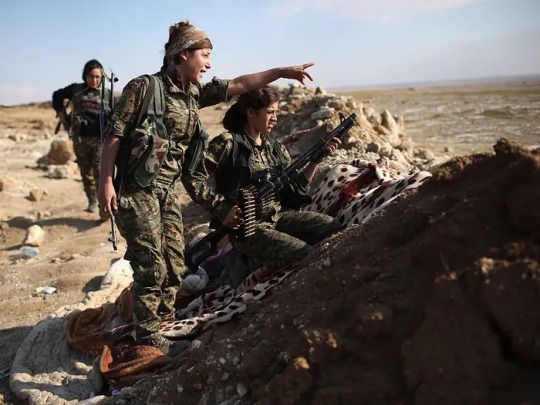
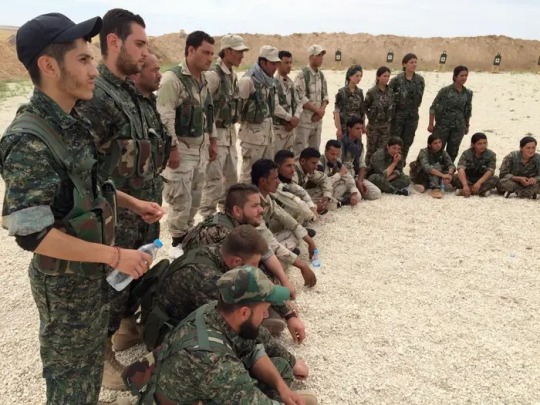
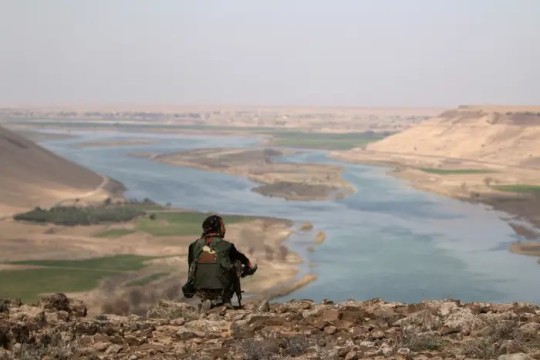
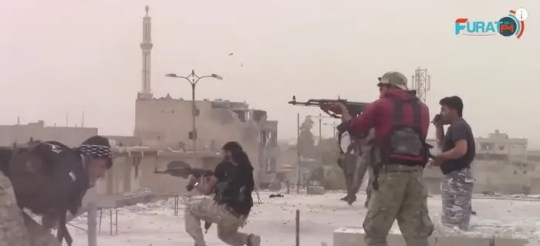
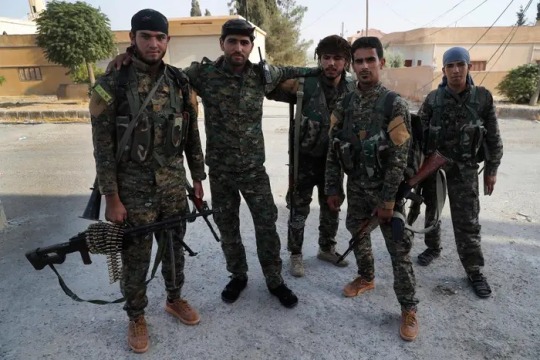
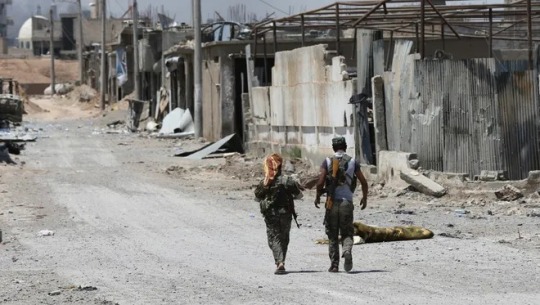
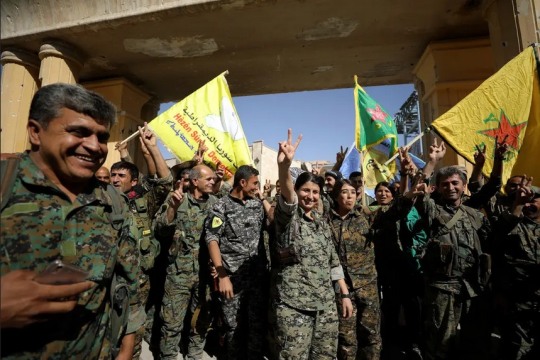
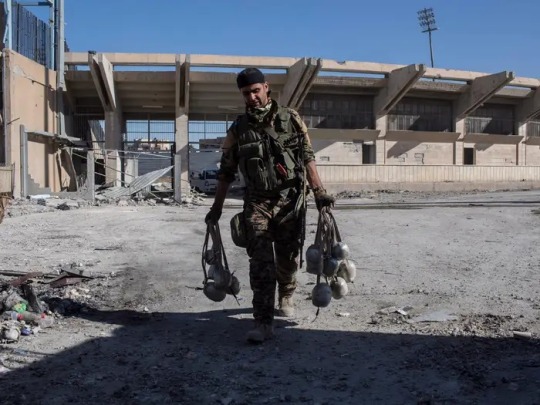
Project2025 #CorpMedia #Oligarchs #MegaBanks vs #Union #Occupy #NoDAPL #BLM #SDF #DACA #MeToo #Humanity #FeelTheBern
JinJiyanAzadi #BijiRojava [VIDEO] ISIS 'caliphate' near collapse as most of Raqqa taken by U.S.-backed forces [UPDATES]
The end for the Islamic State's self-proclaimed caliphate is near, three years after the terrorist group announced its vision for creating a nation state across Iraq, Syria and the wider region…
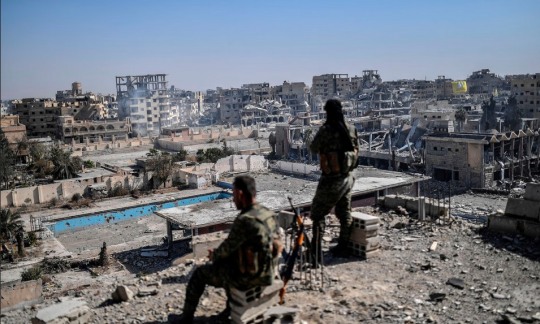
RELATED UPDATE: Rise and fall of Isis: its dream of a caliphate is over, so what now?
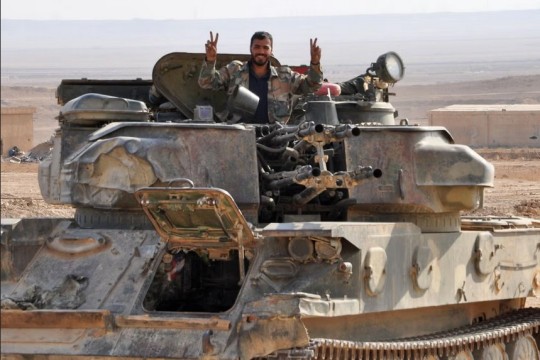
RELATED UPDATE: Isis terror attacks 'could increase' after group's loss of last major stronghold in Syria
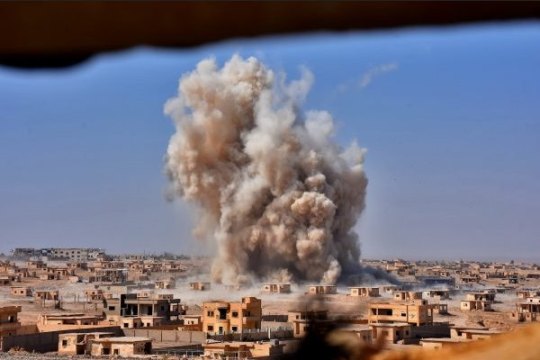
RELATED UPDATE: Insurgents Again: The Islamic State’s Calculated Reversion to Attrition in the Syria-Iraq Border Region and Beyond
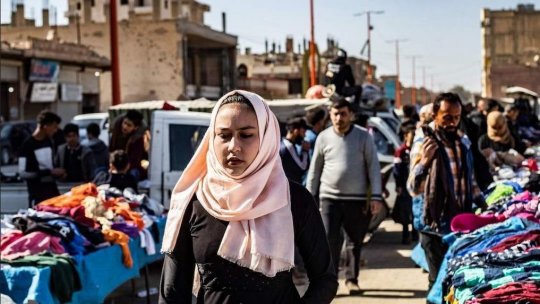
RELATED UPDATE: No Longer Under ISIS Control, How Has Raqqa Changed?
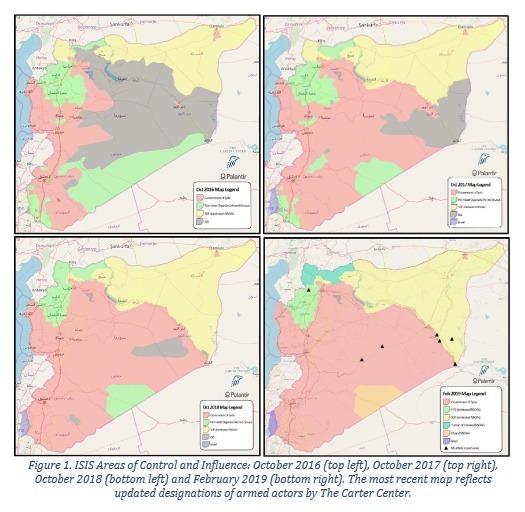
RELATED UPDATE: A REVIEW OF ISIS IN SYRIA 2016 – 2019 - Regional Differences and an Enduring Legacy
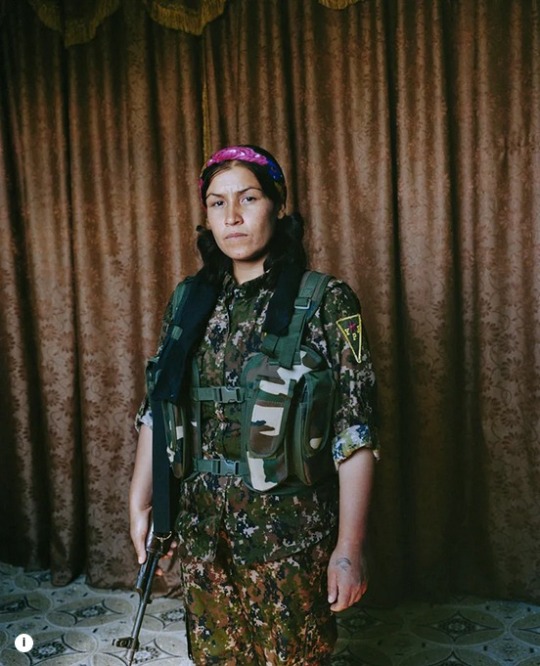
RELATED UPDATE: Jin - Jiyan - Azadi « Women, Life, Freedom
https://phmuseum.com/submissions/jin-jiyan-azadi-women-life-freedom
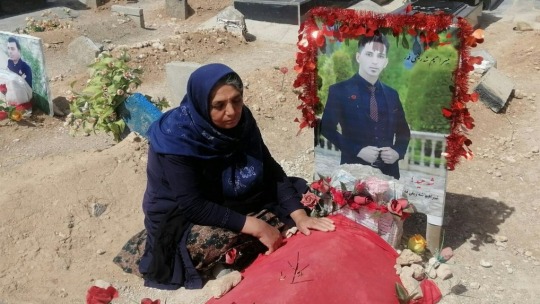
RELATED UPDATE: November 29, 2023; The anniversary of the government killing of Ebrahim Sharifi-Far, one of the martyrs of the revolutionary uprising of Jin, Jiyan, Azadi in Bokan
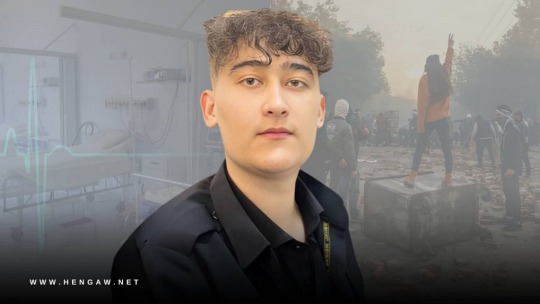
RELATED UPDATE: Sardasht; Barzin Hamzezadeh, one of the Kurdish children arrested in the Jin, Jiyan, Azadi movement, died as a result of injuries caused by torture
FURTHER READING:
14 notes
·
View notes
Text

Been thinking about this passage from an interview with Ruben Gallego in the NYT since I saw it. Not only does he not answer the question later on, I kind of understand why he doesn’t.
I’m not sure there is an answer to the question “how do you convince a person that someone is actively out to get them, who is telling them that to their faces, and all that person hears is ‘well they must mean someone else’s?” That’s not even someone being tricked into doing something, that is an informed choice they are making.
In DBT there’s a lot of hay made about the difference between Right vs. Effective: that you can be correct or on the right side of a situation, but at the cost damaging the interpersonal relationship at hand because you’re not validating the other side, versus focusing on being interpersonally effective, making the other person feel heard. The flaw in this distinction and practice, as many many people have pointed out about DBT, is that it places the onus on the person who is correct to manage both their reaction and the reaction of someone who is, by definition, not responding rationally. There then becomes no responsibility for the other person to engage in that same practice unless they choose to.
This all reminds me of that: how can you be right or effective when the emotion that needs validating is unpredictable, unsolvable (because it’s not like deportations have stopped or lessened in the past 20 years, there is no upper limit to the amount of deportations people seem to want), and fundamentally hostile to any other perspective? I’m of the camp that’s totally comfortable saying “we told you so”, because I’ve seen the limits of interpersonal effectiveness in my own life, and have seen people suffer from decisions they made refuse to change perspective on how or why they got there. That doesn’t make them less than human, but they also definitely think that I am less than human- being right vs effective only goes one way if the other party has no frame of reference, or does and chooses not to engage.
Anyway, I think the only healthy way to view the next however many years is to start from the position “the American electorate was wrong for what it wants and will continue to be wrong until it doesn’t want these things anymore”. If the alternative is acquiescing to any of this shit, then all the better. ���Isn’t this basically The Benedict Option for leftists” yes but those guys were doing it from the wrong direction and for, like, Opus Dei shit, I’m doing it so me and everyone around me doesn’t have to live in terror of their life being turned upside down by the feds for being pro-Palestinian or black or wanting free healthcare or a union or even a Maoist insurgency, idk who cares 1st amendment.
#politics#I know this is rambling but whatever#not a ‘not my job to teach you’ guy but fixing this isn’t work anyone can do alone
4 notes
·
View notes
Text
On Oct. 25, U.S. President Joe Biden said something so extraordinary about the current Israeli-Hamas conflict that, had he really thought it through, he might have seriously reconsidered saying. “There’s no going back to the status quo as it stood on Oct. 6,” Biden said.
It was a simple line, but one with breathtaking scope.
Was it a throwaway talking point or a determined commitment for the ages? Did the president understand that, having tethered the United States to Israel’s war aims, when the dust settles, he’ll be expected to play a lead role in creating a new reality both in Gaza and on Israeli-Palestinian peace? Or does he believe that he can unload most of the post-conflict work to a group of regional and international actors that will somehow shoulder the responsibility for Gaza reconstruction and whatever performative peace process might follow? And does he fully grasp that the proverbial “day after” is likely to be more like the year (or years) after?
Every breakthrough in the Arab-Israeli conflict that occurred within the conflict zone has been preceded by violence, insurgency, and war. Indeed, severe crisis can produce opportunity because it breaks the status quo and injects pain that can produce urgency. But that pain must be married to the prospects of gain—usually but not always generated by an outside mediator. Whether the Biden administration is willing or able to play that role remains to be seen.
Serious challenges stand in the way of a more hopeful, let alone transformed, future. And much of what will confront any effort to alter the Oct. 6 status quo remains largely outside of the president’s capacity to control.
Biden will confront two badly traumatized societies that will each in their own way enter a period of prolonged political reckoning. When Israeli Ambassador to the U.S. Michael Herzog said that Israel was one country on Oct. 6 and a different country on Oct. 8, he was not exaggerating.
The most severe terror attack in the nation’s history; the bloodiest single day for Jews since the Holocaust; the greatest intelligence failure since the 1973 Arab-Israeli War (and perhaps much worse given the civilian death toll of the Oct. 7 attack); and the taking of more than 200 hostages have stunned and shocked a country somewhat conditioned throughout its history to cope with terror and violence. The Hamas attack added to Israelis’ existing fear of incoming rockets the new fear of cross-border massacres—not just near Gaza but also along the Israeli-Lebanese border and in the West Bank, too.
The events of Oct. 7 also undermined the essence of the contract between the governed and those who govern—a government’s commitment to guarantee the safety and security of its citizenry. The average length of an Israeli government since independence is about 1.8 years; and the emergency coalition that Israeli Prime Minister Benjamin Netanyahu formed after the attack will almost certainly be replaced. Whether that will be with a more right-wing or centrist coalition is hard to say.
In the wake of the 1973 war, a state committee of inquiry found the Israeli military and intelligence elites responsible for the failure and didn’t address then-Prime Minister Golda Meir’s role. In 1974, she resigned under public pressure. Yet the real earthquake would not come until three years later, when Menachem Begin’s right-wing Likud party came to power and reshaped Israeli politics for decades to come. In one of history’s great ironies, it would be the right—not the left, which had dominated Israeli politics since independence—that would benefit from Egyptian President Anwar Sadat’s war-then-peace strategy.
This time around, however, Israelis likely won’t be challenged by a charismatic, transformative Egyptian leader boldly seeking peace. And the Israeli public, still reeling from the events of Oct. 7—suspicious, worried, and embittered—will be in no mood for far-reaching concessions on a Palestinian state so close to their borders.
For Palestinians, the reckoning will be much harder. The death and destruction Israel is visiting on Gaza will leave Palestinians in Gaza angry, impoverished, and leaderless. Should Hamas or an Islamist successor survive and be able to mount an insurgency against either an Israeli occupying force or a multinational one in Gaza, then the Palestinian national movement will remain divided—split between Hamas or its successor in Gaza and the Fatah-controlled Palestinian Authority (PA) in the West Bank, with two different visions of where and what Palestine should be.
The PA—led by an aging Mahmoud Abbas, who is now in the 18th year of a four-year term—will be further tarnished by its inability to do anything but watch as Palestinians are killed by the thousands in Gaza or to protect Palestinians in the West Bank from attacks by Israeli soldiers and settlers. Armed groups of young Palestinians such as the Lions’ Den or Nablus Brigade—some independent, others influenced by Hamas and Palestinian Islamic Jihad—will carry on the struggle against the occupation as Israeli encroachment on Palestinian land continues. Having postponed elections in 2021, Abbas will be under immense pressure to hold them for both a new legislature and the presidency. But what about Gaza? Can elections be held there? And as happened in 2006, might Hamas again win a majority?
New leadership and reform of the PA’s authoritarian and corrupt practices are clearly required to replace the aging Abbas and the Fatah establishment. But from where will it come? Once again, there’s talk of the most popular Palestinian leader, Marwan Barghouti—who is currently serving five life sentences in an Israeli prison—coming to the rescue. A poll of Palestinians in Gaza taken shortly before the Oct. 7 attack on preferences for president should elections be held had Barghouti at 32 percent; Ismail Haniyeh, Hamas’s political head, at 24 percent; and Abbas at 12 percent.
Leaders need not be born to lead; often, they emerge in response to the direst of circumstances. Ukrainian President Volodymyr Zelensky is one such leader who comes to mind. But if the Biden administration has any hope of trying to push for a credible process to end the Israeli-Palestinian conflict, it will need leaders on both sides with the capacity and desire to make and sustain very tough—even historic—decisions. Right now, it’s hard to see those kinds of leaders emerging quickly in the wake of this crisis.
Any postwar effort will need to prioritize rebuilding a destroyed and traumatized Gaza. Physically reconstructing and repairing homes and infrastructure; supporting a displaced population of what may eventually be almost half of Gaza’s residents; and psychologically rehabilitating a traumatized populace, especially children, will be a gargantuan task. Who or what will assume responsibility for this effort is an open question.
But it will be taking place in a post-conflict environment in which Israeli forces may still be present in Gaza until some transitional mechanism to ensure security and order has been worked out. And Netanyahu’s comment last week that Israel may have to stay in Gaza for an “indefinite period” suggests an even more complex situation. To prevent a Hamas resurgence, Israel is going to demand influence in the temporary governance of Gaza, which will make any reconstruction effort much more difficult—or, perhaps apart from tending to the immediate needs of the population, hard to begin at all. Israel will almost certainly want to inspect construction materials—any of which might be used for tunneling or manufacturing weapons. And Iran will be looking for opportunities to provide money and resources to feed an insurgency.
The question of who will ultimately govern Gaza further complicates the situation. Key Arab states such as Qatar, Egypt, and Saudi Arabia can play a critical role in this process by providing financial and political support, though it’s hard to imagine an Arab peacekeeping force patrolling Gaza and doing counterinsurgency against Palestinians or having much legitimacy with Israelis still occupying Gaza.
The most logical and feasible solution is Palestinian governance legitimized by elections. As evidenced by U.S. Secretary of State Antony Blinken’s recent meeting with Abbas, the Biden administration is clearly thinking about the PA as a key ingredient in Gaza’s future governance. Indeed, the secretary called for an “effective and revitalized” PA. But this is far easier to describe than to actualize. Abbas and his Fatah colleagues have little legitimacy in the West Bank and none in Gaza. And after 16 years of absence, the PA cannot reenter Gaza on the back of an Israeli Merkava tank and expect to be welcomed by the people of Gaza.
Empowering the PA—if it can be done at all—will require linking reconstruction and governance in Gaza to a serious and credible process to address the Israeli-Palestinian conflict. In short, legitimacy for the PA in addition to holding elections will need to be tied to a real effort to negotiate an end to Israel’s occupation, presumably based on two states. To make this credible, there would need to be front-loading with any number of steps to build up the PA, including restricting if not ending Israeli settlement activity in the West Bank. Right now—and certainly with this Israeli government—such a step seems far away.
The biggest question is whether Biden has the bandwidth to take on such a colossal endeavor—especially as he heads into what is likely to be a closely fought presidential election in 2024. Or is that more likely an assignment for a second Biden administration, if there is one? Either way, unless the administration plans to get serious this coming year about at least laying the foundations for new realities in Gaza and the West Bank, very little is going to move.
Governing is about making difficult choices, and it’s not as if there are no other foreign-policy challenges to absorb the U.S. president’s time. Competing priorities abound, each tied to complex domestic politics. Biden has tethered the United States to Ukraine’s fight with Russia, and the reality of what is likely to be a very long war resourced by his administration has begun to sink in amid growing Republican doubts about long-term support.
Biden has also committed the United States to defending Taiwan against China, even if what that defense would look like in the event of war remains ambiguous. If there is an inside-the-Beltway consensus on any foreign-policy issues in Washington, it’s on pursuing tough policies against China and Iran, especially as the Israel-Hamas war has brought the United States much closer to the possibility of a conflict with Tehran.
Pursuing Middle East peace isn’t for the fainthearted or those who aren’t prepared to spend the energy and time. Much of the effort can be offloaded to a secretary of state and a special envoy. But even with husbanding the White House’s time, it will require a good deal of presidential focus. Former U.S. President Jimmy Carter not only had to convene a presidential summit but also embarked on a shuttle diplomacy trip in 1979 to conclude the Egypt-Israel peace treaty. Former U.S. President Bill Clinton traveled extensively in the region and called at least four Middle East summits as part of his peacemaking efforts.
Nor can one ignore the domestic politics that can drain a president’s political currency—and those domestic politics on the Israeli-Palestinian issue are fraught indeed. With the Republican Party emerging as the Israel-can-do-no-wrong party and a divided Democratic Party with a progressive wing that’s pushing for Biden to impose accountability on Israel, Biden will need to navigate a perilous course. Invariably, pushing for Israeli-Palestinian peace will mean friction or worse with Israel. Will the president be up to it?
In tying the United States to both Israel’s trauma on Oct. 7 and its resulting campaign to eradicate Hamas in Gaza—and all the death and destruction that is causing—Biden now shares direct responsibility for the fate of the Israeli-Palestinian conflict. Biden has committed himself publicly to a fundamental change in the status quo. If that’s going to happen, first and foremost there will need to be Israeli and Palestinian leaders committed to that objective. But even with those kinds of leaders, Biden will need to own this, too.
And even if he does, the risks are great. If the past is prologue, as it’s been so many times when it comes to U.S. peacemaking efforts, the chances of success are small. Walking away or pursuing a performative policy in the wake of the horrors we’ve witnessed will undermine the president’s personal credibility—as well as America’s—in the region and the world. And it will cost him politically, particularly in a state such as Michigan, with Arab Americans as well as with progressives and younger Democrats. Biden may very well be remembered as the U.S. president who presided over the bloodiest phase of the Israeli-Palestinian conflict and, most likely, the death of the only pathway that offers a hope of ending it: the much-maligned two-state solution.
The stakes are enormous, especially for a president who cares deeply about Israel, Palestinian suffering, and the United States’ leadership role in the world. But it remains to be seen whether his stunningly powerful pledge not to return to the status quo of Oct. 6 was merely a throwaway line and a performative talking point or a serious and determined commitment to finding a solution to an excruciatingly complex conflict that has eluded all of his predecessors.
9 notes
·
View notes
Text
i watched the battle of algiers (1966) with a friend the other day. really powerful movie
ID: screenshots from the movie "The Battle of Algiers". the scene is an interview between a french reporter, and Ben M'hidi (Algerian revolutionary leader) Reporter: isn't it cowardly to use your women's baskets to carry bombs, which have taken so many innocent lives? Ben M'hidi: Isn't it even more cowardly to attack defenceless villages with napalm bombs that kill many thousands of times more? Obviously, planes would make things easier for us. Give us your bombers, sir, and you can have our baskets.







its also really something how the rhetoric used by the french colonizers is near-identical to modern ziоnist talking points (including how even many western "leftists" supported ziоnist ideals)
ID: screenshots depicting a french colonel answering an interview question Colonel Mathieu: Is it legal to set off bombs in public places? Remember Ben M'Hidi's answer when you asked him the question. The F.L.N. wants to throw us out of Algeria, and we want to stay. Even with slight shades of opinion, you all agree that we must stay. When the F.L.N. rebellion began, there were no shades at all. Every paper, the communist press included, wanted it crushed.







down to the "we cant be nazis, we were killed by nazis during ww2" excuse
ID: continued screenshots from the same scene as above Colonel Mathieu: We're neither madmen nor sadists. Those who call us fascists forget the role many of us played in the Resistance. Those who call us Nazis don't know that some of us survived Dachau and Buchenwald.





we also read the wikipedia page together after the movie to clarify some details, and found out apparently the battle of algiers has also been used for "counter-insurgency classes", including by the us military. which is rather abhorent to the movie's legacy and history
ID: screenshot from "The Battle of Algiers" wikipedia page, in the section under "Screenings for counterinsurgency agencies". the contents of note are: 1) 1960s screenings in Argentina: By 1963, cadets at the Navy Mechanics School (ESMA) started receiving counter-insurgency classes. In one of their courses, they were shown the movie The Battle of Algiers [...] ESMA was later known as a center for the Argentine Dirty War and torture and abuse of insurgents and innocent civilians. Anibal Acosta, one of the ESMA cadets interviewed 35 years later [...], described the session: "They showed us that film to prepare us for a kind of war very different from the regular war we had entered the Navy School for. They were preparing us for police missions against the civilian population, who became our new enemy."
2) 2003 Pentagon screening: During 2003, the press reported that United States Department of Defense (the Pentagon) offered a screening of the movie on August 27. The Directorate for Special Operations and Low-Intensity Conflict regarded it as useful for commanders and troops facing similar issues in occupied Iraq. A flyer for the screening said: "How to win a battle against terrorism and lose the war of ideas. Children shoot soldiers at point-blank range. Women plant bombs in cafes. Soon the entire Arab population builds to a mad fervor. Sound familiar? The French have a plan. It succeeds tactically, but fails strategically. To understand why, come to a rare showing of this film"


2 notes
·
View notes
Text
Colombia-Iraq Relations: Strengthening Ties in Security, Trade, and Culture

Colombia and Iraq may seem like two countries that have little in common, but in recent years they have been forging a strong relationship that is beneficial to both nations. Despite being located on opposite sides of the globe, Colombia and Iraq have found common ground in areas such as trade, security, and cultural exchange. One of the main factors driving the closer ties between Colombia and Iraq is their shared commitment to fighting terrorism and promoting stability in the Middle East. Colombia has a long history of dealing with armed insurgencies, such as the FARC, and has valuable experience to offer in terms of counterinsurgency tactics and post-conflict reconstruction. In recent years, Colombian security experts have travelled to Iraq to provide training and assistance to Iraqi forces in their fight against terrorist groups like ISIS. In terms of trade, Colombia and Iraq have been working to increase their economic cooperation. Colombia is a major exporter of agricultural products, such as coffee, bananas, and flowers, while Iraq has a growing demand for these goods. In addition, Colombia has expertise in sectors such as energy, infrastructure, and healthcare that could benefit the Iraqi economy. Both countries have expressed interest in expanding their trade relations and exploring opportunities for investment. Cultural exchange is also an important aspect of Colombian-Iraqi relations. In recent years, there has been a growing interest in Colombian music, dance, and cuisine in Iraq, and vice versa. Colombian artists have performed in Iraqi cities, showcasing the vibrant culture of Colombia, while Iraqi musicians and artists have visited Colombia to share their talents with Colombian audiences. These cultural exchanges help to foster understanding and friendship between the two nations. Overall, the relationship between Colombia and Iraq is a testament to the power of diplomacy and collaboration in overcoming differences and building bridges between nations. By working together in areas such as security, trade, and cultural exchange, Colombia and Iraq are laying the groundwork for a stronger and more prosperous future for both countries. As they continue to deepen their ties, the potential for even greater cooperation between Colombia and Iraq is boundless. Read the full article
0 notes
Text
Terror lovers: Here’s how Ukraine is gaslighting the Global South
New Post has been published on https://sa7ab.info/2024/08/12/terror-lovers-heres-how-ukraine-is-gaslighting-the-global-south/
Terror lovers: Here’s how Ukraine is gaslighting the Global South
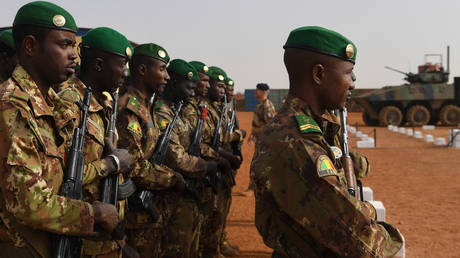

Kiev has managed to offend a whole lot of countries by openly supporting terrorists in a weird act of anti-diplomacy
The government of Mali has officially severed diplomatic ties with Ukraine. Ukraine is a country in eastern Europe; Mali is located in the Sahel region of Africa. Their political and commercial relationships are, to put it mildly, not intense, neither in a positive nor – until now – a negative sense. Kiev does not even maintain an embassy in Bamako, Mali’s capital, despite having them in a number of other African states; Mali has no diplomatic mission in Ukraine either. At first sight, it is hard to understand how two countries that have so little to do with each other could even have managed to get into such a clash. But leave it to Kiev to shoot itself in the foot. The strange falling-out is entirely due to Ukraine. Its leadership’s aggressive, arrogant, and shortsighted actions have left Bamako hardly any other option but to, in effect, tell Kiev to get lost. While this may appear to be a comparatively localized issue, that impression is misleading. In reality, Ukraine’s crude treatment of the African nation has wider significance because it is emblematic of its inability to persuade the Global South or even address it in a respectful manner. But first things first. Here’s what happened: In late July, troops fighting for Mali’s government, from its own military and Russia’s Wagner organization, were ambushed in the north of the country, close to the town of Tinzaouaten. The attackers also consisted of two different but – at least, de facto – cooperating forces: There were Tuareg insurgents, representing a long-standing separatist rebellion going back to 2012, organized in the CSP-DPA (Cadre Stratégique Pour la Défense du Peuple de l’Azawad). In addition, al-Qaeda-affiliated Jihadist terrorists operating under the label JNIM (Jama’at Nasr al-Islam wal-Muslimin) also struck. Details of this battle are still not entirely clear. Apparently, a sand and dust storm mostly neutralized the airpower advantage of the Mali government forces. However, it is certain that together, the Tuareg separatists and the Jihadist terrorists inflicted a bloody defeat on their opponents. Wagner’s losses were substantial, with reported numbers varying between over “two dozen,” “approximately 50,” and “over 80.” The government in Bamako has put losses among its own military’s soldiers at two dead and 10 injured.
Read more
Fourth African state sanctions Ukraine for ‘supporting terrorism’
The precise figures, though, are much less important than three simple facts: Both the Wagner troops and the soldiers of Mali’s military were fighting on behalf of the government. They were attacked by a combination of separatist Tuareg rebels and Jihadist terrorists and, most importantly from the perspective of the Malian government, both – the rebels and the terrorists – are enemies that it has a right, under international law, to combat and that outsiders have no right to support. Enter Ukraine. Or to be precise, Kiev’s notorious military intelligence service HUR. In reality a CIA-trained assassination and black ops outfit with a predilection for crazy schemes meant to widen the Ukraine War, HUR couldn’t keep its mouth shut. Which, if you think about it, is an odd weakness for a clandestine agency. Shortly after the battle of Tinzaouaten, HUR spokesman Andrey Yusov went public, boasting that his service had assisted in the ambush by providing “all the necessary information they [the attackers] needed.” There has been speculation, too, that more may have been involved, such as drones and weapons. Now, you may think that after such a massive indiscretion, the hatches would go down, with Yusov officially disavowed, gagged, and locked away (or at least fired). But this is the Zelensky regime, founded by and revolving around a histrionic self-promoter. So, no damage control. On the contrary, once in a hole dug by a spy who can’t keep a secret, Ukraine’s “diplomats,” whose forte is being undiplomatic, kept digging: Yury Pivovarov, Kiev’s ambassador to Senegal – why offend only one African country when you can antagonize two? – posted a video on his embassy’s website to do some more bragging about helping kill Mali government forces in Mali. Senegal’s government summoned the “diplomat,” and the video has now disappeared. It does make you wonder: Are the Kiev “elite” sending their draft-dodgers off to do “diplomacy”? How do they select such gems? There are, of course, two levels to Kiev’s cluster-fiasco. If what Yusov boasted about did actually happen, that is, if Ukraine assisted a de facto coalition of separatist insurgents and Jihadist terrorists in attacking and killing Malian government forces – and that includes the Wagner troops here because their mission had a mandate from Bamako – then Kiev has, obviously, committed a major crime. Indeed, in that case, Mali would have a clear casus belli justifying going to war against Ukraine as a matter of self-defense under international law. It is another matter that, given geographical distance and Kiev’s ultimate irrelevance as well as tendency to punish itself, such an action would make no practical sense for Bamako. The Ukrainian government’s reaction to Mali severing ties has, by the way, betrayed a very bad conscience indeed. Kiev, absurdly, claims Mali has no evidence for its involvement. Excuse me? A Ukrainian high military intelligence officer and an ambassador boast about it and that’s “no evidence”? Sometimes, Kiev’s communications do sound as if produced under the influence.
Read more
Ukraine denies involvement in Mali rebel attack
If, on the other hand, Yusov and Pivovarov have simply fantasized it all (unlikely as that is), then we are left with the picture of a regime in which high officials take a masochistic pleasure in telling tall tales that can only greatly damage their country. And make no mistake, damage it they will. Because Ukraine’s flagrant misbehavior in this matter is finding international attention. The matter has by no means remained minor but is reverberating through media across the globe. Especially in the Global South, this incident will be noted and remembered as revealing Kiev’s aggression and arrogance. That is, of course, doubly ironic. First, throughout the proxy war for which the Zelensky regime has allowed Ukraine to be used, Kiev and its so-called “friends” in the West have tried to advertise Ukraine as on a par with the post-colonial states of the Global South. The rhetorical strategy has been as obvious as it has been crude, namely to garner sympathy by appropriating what Asians, Africans, and South Americans have for so long suffered at the hands of the West: a form of perverse role-playing from a country that has aligned itself with just that West to a suicidal degree and that, clearly, has no problem at all reproducing the West’s deep, ultimately racist arrogance toward the Global South. Second, the Zelensky regime has also been desperately trying to mobilize the Global South on its side in its struggle with Moscow. It has failed abysmally. The Mali incident shows why, and also shows why it won’t ever succeed. Not before Ukraine’s elites overcome their stodgy provincialism and learn some respect. That is, probably never. Why? Let Mali have the last word here. Its government spokesman Abdoulaye Maiga made it all very clear: “Ukraine’s involvement in a cowardly, treacherous and barbaric attack by armed terrorist groups […] violates Mali’s sovereignty, going beyond the scope of foreign interference, amounting to support for international terrorism.”
0 notes
Text
By Yousef Munayyer, a Palestinian citizen of Israel and the head of the Palestine/Israel program at the Arab Center Washington DC
As a devastating crisis continues to unfold with the horrific bombardment of Gaza, there is little sense of how it will end. As a lifelong student of Israel-Palestine, I found my mind racing through many historical dates to find parallels, meaning, and direction.
Perhaps the date that comes to mind for most people is Oct. 6, 1973, the start of an Arab war effort to regain land taken by Israel in 1967. The 1973 surprise attack, which was 50 years and a day from the Oct. 7 Hamas assault, caught a recalcitrant and hubristic Israel off guard and fundamentally changed the way it thought about its policies toward Egypt in the years that followed, paving the way for a historic peace agreement a few years later.
I thought about the 1968 Battle of Karameh. This battle, little known in Western narratives of the conflict but hugely consequential in Palestinian ones, came after the 1967 war, when Israel enjoyed an aura of invincibility. PLO fighters alongside Jordanian soldiers fought the Israeli military, destroyed some military equipment, and captured more. The battle sent the message that Israeli power was not what it seemed, and it helped swell the ranks of militant factions across the region.
But a more important date stands out: Sept. 6, 1972. The day prior, Palestinian guerrillas had killed an Israeli coach and athlete and taken nine other members of the Israeli team hostage at the Munich Olympic Village, where all the cameras of the world had assembled, and by the time a botched rescue attempt by the German police had concluded, all the hostages and most of the Palestinian guerrillas were dead.
The world watched this all play out on live TV. Before that moment, and perhaps since, no set of events has had a more consequential impact on the emergence of what I call the terrorism framework: a set of policies and practices that defines how such moments should be understood, responded to, and prevented
[...]
Kissinger was concerned that if the global debate about Munich was not immediately redirected toward uniform condemnation of the Palestinian guerrillas, the more people might think about the root causes and Palestinian grievances.
Herein lies the trap of the terrorism framework. It ostensibly aims to counter political violence, but it does so in a way that ensures political violence persists—by exceptionalizing it as a form of violence that comes from a vacuum. Unlike most forms of political violence—such as interstate conflicts and civil wars, insurgencies, rebellions, or political repression—terrorism is not something we are encouraged to understand the causes of; at best, reductionist explanations chalk up motivations to ideology, which, in the Palestinian case, is transparently flawed since Palestinian political violence has always transcended ideological divides.
[...]
The reality is that political violence is part of the human condition and always has been, long before Zionism and long before Palestine. When humans commit to study pathology, it is not out of some desire to justify the diseases that plague us but rather to try to eliminate them; to the extent that there is any evil in this equation, it is in the ideological commitment to refuse to examine the cause of the disease. Without a genuine understanding of why this is happening—one that does not exceptionalize the problem or the perpetrators of violence on any side—it becomes impossible to heal what ails Israelis and Palestinians alike.
8 November 2023
0 notes
Text
By • Olalekan Fagbade Terrorism: Military Lacks Training On Evidence Gathering, Prosecution Of Criminals - Arase The Chairman of the Police Service Commission (PSC), Solomon Arase, has said that the military officers deployed to areas where terrorists operate freely, particularly North East, lack training and knowledge to gather evidence against the criminals, hence the increasing rate of their activities. Arase, a former Inspector-General of Police, also faulted the practice where arrested bandits are released and reintegrated into society without proper profiling, noting that most of them eventually return to the crime, creating more harm for the region. He, however, demanded that the police take over the fight against terrorism and other crimes from the military, arguing that officers of the force were trained to secure crime scenes, gather evidence and prosecute criminals which is different from the standard operating procedures for the military. Arase was quoted to have stated these in Abuja when he played host to the police advisor, Lake Chad Basin Support Framework of the United Kingdom High Commission in Nigeria, Elizabeth Macleod; leadership of the Bureau of Public Service Reforms led by its Director-General, D.I. Arabi and a delegation from the NTA News 24 led by its General Manager, Fatima Abbas Hassan. The PSC boss, in a statement issued by the spokesman of the commission, Ikechukwu Ani, on Sunday, advised the federal government to reduce the military component of the war against insurgency and allow the police, the lead agency in internal security to lead the battle. Arase said, “The police are properly trained for internal security and leading the battle will curb the activities of the terrorists in the North East. More convictions of these criminals in the North East would serve as a deterrent to others and eventually reduce the spate of crime and criminality in the region.” “The military deployed to the troubled regions in the North East have no such training and this has resulted in a low rate of prosecution of offenders and a conviction rate less than five per cent”, the statement read. The former IGP lamented that the problem of the counter-insurgency mission in Nigeria was a lack of inter-agency collaboration and intelligence sharing between the security agencies, adding that the conviction rate of less than five per cent was disproportional with arrests and it does not send the right signals. Speaking earlier, the police advisor, Macleod had informed Arase that she was based in Maiduguri, Borno State and that the project was to assist the Nigeria Police in Borno State in tackling the insecurity in the state. It was also noted that the project was funded by the United Kingdom High Commission in Nigeria and implemented by Adam Smith International. In his reply, the PSC chairman said the commission would be happy to collaborate with the Support Framework and have officers of the Nigeria Police Force benefit from what they are doing in the North East. He also reiterated that the Police Recruitment Board will soon be inaugurated, maintaining that the commission and the police are not working in unity for the overall benefit of national security, adding that all modalities were already in place for the commencement of the recruitment.
0 notes
Text
Suicide bomber kills nine police officers in Pakistan
A suicide bomber killed nine police officers and wounded 16 others Monday in an attack on their truck in southwestern Pakistan, officials said. Security forces have been battling a years-long insurgency by militants in Balochistan demanding a bigger share of the province’s wealth, as well as attacks by the Pakistan Taliban (TTP). “The suicide bomber was riding a motorbike and hit the truck from behind,” senior police official Abdul Hai Aamir told AFP. The incident took place near Dhadar, the main town of Kachhi district, about 120 kilometres (75 miles) southeast of Quetta in Balochistan. Photos of the aftermath showed the police truck upside down on the road with its windows shattered. Mehmood Notezai, police chief for Kachhi district, told AFP the officers were returning from a week-long cattle show where they had been providing security. There has been no claim of responsiblity for the attack. “Terrorism in Balochistan is part of a nefarious agenda to destabilise the country,” Prime Minister Shehbaz Sharif said in a statement released by his office. The country is facing overlapping political, economic and environmental crises, as well as a worsening security situation.– Attacks on the rise – Attacks have been on the rise in Pakistan since the Afghan Taliban seized control of Kabul in August 2021, emboldening militant groups along the border which have increasingly targeted security forces. Last month five people died when a TTP suicide squad stormed a police compound in the port city of Karachi. It came just weeks after a bomb blast at a police mosque in the northwestern city of Peshawar killed more than 80 officers — an attack claimed by a group sometimes affiliated with the TTP. “Despite different ideological, ethnic and political outlooks, (militant groups) are all franchises bound by one objective: to hit the security forces and instil a sense of fear and uncertainty in Pakistan,” said Imtiaz Gul, an analyst with Islamabad’s Center for Research and Security Studies. Balochistan, which borders both Afghanistan and Iran, is the largest, least populous and poorest province in Pakistan. It has abundant natural resources, but locals have long harboured resentment, claiming they do not receive a fair share of its riches. Tensions have been stoked further by a flood of Chinese investment under Beijing’s Belt and Road Initiative, which locals say has not reached them. China is investing in the area under a $54 billion project known as the China-Pakistan Economic Corridor, upgrading infrastructure, power and transport links between its far-western Xinjiang region and Pakistan’s Gwadar port. Read the full article
0 notes
Note
(not trying to be controversial, honest question) when the media reports that Russian shelling has been targeting civilians, is there a meaningful difference between "targeting civilians" and "collateral damage"? In the first month of the Iraq war an estimated 3k-4k Iraqi civs were killed, I don't mean this as "whataboutism", I'm just curious if you think there is a firm distinction between "targeting civilians" as Russia is accused of, and just "hitting civilians by accident", like in Iraq? thx
In LOAC, the difference between deliberate targeting and collateral damage is by intent. "Deliberate targeting" is just that, deliberate. You hit your intended target, so deliberately targeting civilians means that your soldiers are consciously attacking them. Collateral damage is incidental damage, the persons killed or injured during the strike were not the intended targets. Civilian targets (both people and buildings) are meant to be protected against both direct and indiscriminate targets. Think of it as the difference between murder and manslaughter.
That's the theory. In practice, few armies deliberately target civilians because of the political and military consequences. Terror tactics usually do, but most militaries have moved away from deliberately targeting civilians; compare Operation Meetinghouse (the firebombing of Tokyo) to the more modern precision bombings and you see a clear transition beginning with the advent of precision-guided munitions. Complicating things further are the degree with which targets do not identify themselves as military targets, masquerading as and operating among civilians to launch attacks (insurgency warfare), or in the extreme cases, using civilians as human shields in an attempt to create unintentional civilian casualties - Da'esh was infamous for this.
However, these efforts do not mitigate the need to take "constant care' in identifying the target, utilizing the tactics or technology available that maximizes precision to avoid civilian targets and civilian infrastructure, such as during the Vietnam War where insurgency tactics did not mitigate US war crimes against civilians, to say nothing of much more blatant actions such as the Mỹ Lai massacre. Similarly, actions taken must conform to a sense of proportionality, that is, the risk to civilians must not exceed the perceived military benefit. One of the clearest examples of this sense of proportionality being violated have been in Russia's campaigns in Grozny, Aleppo, and now Mariupol (or the Beslan school siege), and that's not counting Russia's more deliberate terror strikes against identified civilian targets.
Here's a helpful primer that goes into a lot of these things in-depth.
Thanks for the question, Anon.
SomethingLikeALawyer, Hand of the King
16 notes
·
View notes